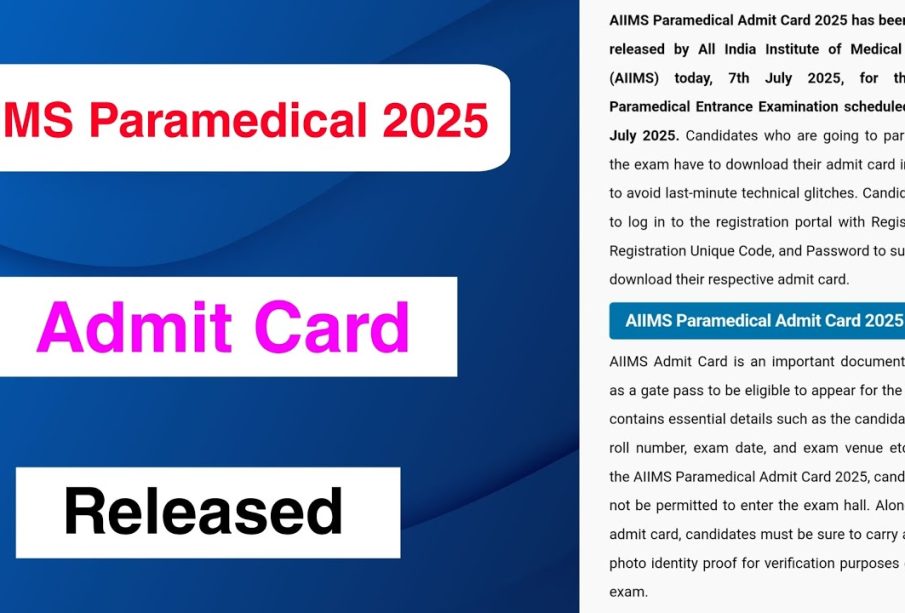Understanding AIIMS Paramedical Courses

Introduction
The All India Institute of Medical Sciences (AIIMS) stands as a premier institution in India, renowned for its commitment to excellence in medical education and healthcare. Among its various academic offerings, paramedical courses play a critical role in training skilled professionals who support healthcare services. With the growing demand for healthcare workers in India, especially post-pandemic, AIIMS paramedical programs are more relevant than ever.
Details of AIIMS Paramedical Courses
AIIMS offers a diverse range of paramedical courses across various domains, which include but are not limited to, Nursing, Medical Laboratory Technology, Radiography, and Physiotherapy. These courses are designed to equip students with essential skills and knowledge necessary for functioning effectively in multifaceted healthcare environments.
For instance, the B.Sc. in Nursing program is structured to provide both theoretical knowledge and practical training, ensuring that graduates can deliver high-quality patient care. Similarly, programs in Medical Laboratory Technology focus on the competencies required for diagnostic services, playing a crucial role in the ongoing treatment of patients.
Current Trends and Future Prospects
As healthcare systems are evolving, the role of paramedical professionals is becoming increasingly significant. Reports suggest a consistent rise in job opportunities in paramedical fields, in part due to increasing hospital beds and healthcare facilities across urban and rural areas. AIIMS graduates are well-recognized for their competency and are sought after by both public and private sector employers.
In addition to this, telemedicine and digital health initiatives have opened new avenues for paramedics in offering remote services, emphasizing the need for training in both traditional and technological aspects of care.
Conclusion
AIIMS paramedical courses are crucial for fostering a robust healthcare workforce that can meet the demands of a rapidly changing medical landscape. They not only provide students with the necessary skills and knowledge but also contribute significantly to the healthcare system of the country. As job prospects in this field continue to grow, aspiring healthcare professionals should consider the advantages of enrolling in these programs, positioning themselves for a fruitful career in healthcare.







